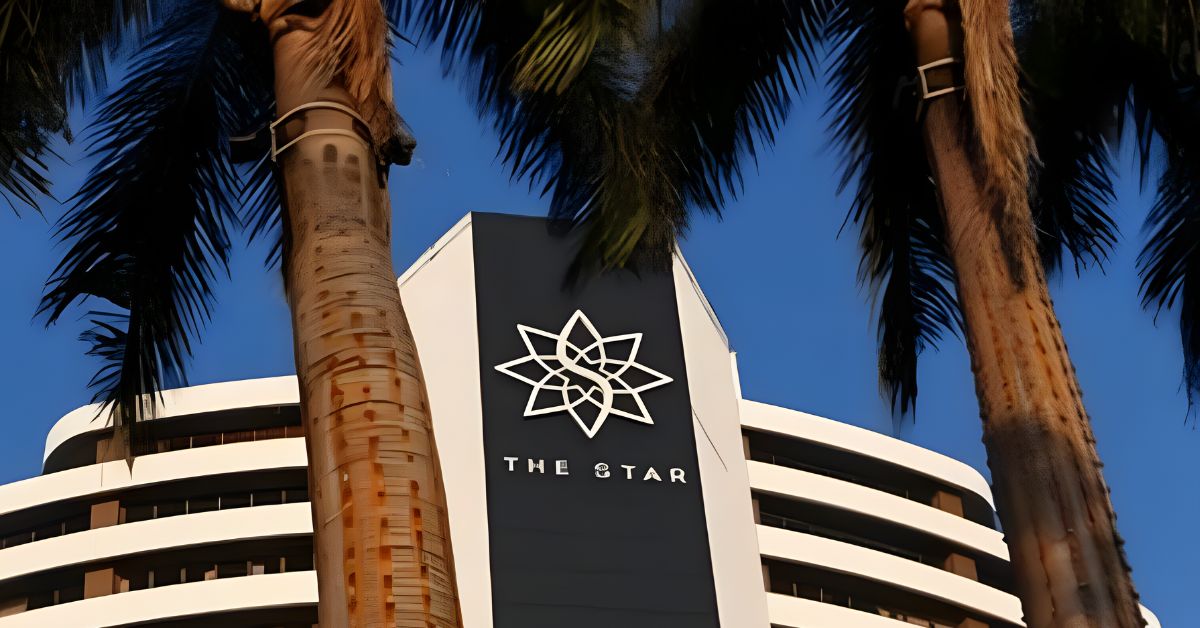On August 1, 2025, Star Entertainment, Australia’s second-largest casino operator, announced the collapse of a critical deal to sell its 50% stake in the A$3.6 billion ($2.32 billion) Queen’s Wharf casino and resort project in Brisbane. The failure of negotiations with Hong Kong-based investors Far East Consortium and Chow Tai Fook Enterprises led to a sharp decline in the company’s share price, which hit a record low of A$0.091. This setback exacerbates Star’s ongoing financial challenges, raising concerns about its ability to manage mounting debts and avoid administration as regulatory and operational pressures intensify.
Background of the Queen’s Wharf Deal
The Queen’s Wharf project, a sprawling casino, hotel, and entertainment complex in Brisbane’s central business district, was intended to be a cornerstone of Star Entertainment’s portfolio. Developed in partnership with Far East Consortium and Chow Tai Fook Enterprises, each holding a 25% stake, the A$3.6 billion precinct opened in August 2024 after significant delays and cost overruns. Star, which holds a 50% stake, sought to sell its share to its Hong Kong partners to alleviate its strained balance sheet.
In March 2025, Star announced a tentative agreement for the Hong Kong investors to acquire its stake for A$53 million, alongside transferring ownership of other Queensland assets. The deal was seen as a lifeline to keep the company afloat amid liquidity concerns. However, as reported by Reuters, negotiations broke down due to unresolved commercial issues, with the investors refusing to extend talks beyond the July 31 deadline.
Financial Implications of the Deal’s Collapse
The failure of the Queen’s Wharf deal has significant financial consequences for Star Entertainment. The company must now repay A$41 million to its Hong Kong partners, including A$10 million by August 6 and A$31 million by September 5, covering prior equity contributions and proceeds. Failure to meet these obligations could result in Star forfeiting its stake in the Dorsett hotel on the Gold Coast, further weakening its asset portfolio.
Additionally, Star remains responsible for its share of the project’s A$1.4 billion debt facility, due for refinancing in December 2025, and an estimated A$200 million in future equity contributions. With only A$234 million in cash reserves, bolstered by recent asset sales and an equity injection from U.S. firm Bally’s and shareholder Bruce Mathieson, Star faces significant pressure to secure new funding.
Share Price Plummet and Market Reaction
Following the announcement, Star Entertainment’s shares dropped over 17% in early trading on August 1, reaching a record low of A$0.091 before recovering slightly to A$0.094. The sharp decline reflects investor concerns about the company’s financial stability and its ability to navigate upcoming debt obligations. According to Bloomberg, trading volume surged, with 11.8 million shares exchanged compared to a 30-day average of 8.3 million, indicating heightened market attention.
Analysts have expressed alarm about Star’s precarious position. John Lockton, head of investment strategy at MST Financial, described the December debt refinancing as a “make-or-break moment” for the company, noting its dwindling cash flow and ongoing regulatory challenges. The collapse of the deal has further clouded Star’s financial outlook, with some experts warning of potential administration if a new funding solution is not secured.
Regulatory and Operational Challenges
Star Entertainment has been under intense scrutiny over the past few years, facing multiple regulatory probes into its operations. Investigations in New South Wales and Queensland uncovered systemic breaches of anti-money laundering and counter-terrorism financing laws, leading to significant fines and operational restrictions. The New South Wales Independent Casino Commission imposed a A$15 million fine in 2024, while the federal regulator AUSTRAC is pursuing a potential A$400 million penalty, with a court decision pending.
These regulatory issues have severely impacted Star’s revenue, particularly from high-roller clients. A shift to mandatory cashless gambling, designed to enhance transparency, has reduced average daily revenue at its Sydney casino by over 15%. Additionally, cost-of-living pressures have led regular gamblers to favor suburban venues with less stringent regulations, further straining Star’s earnings.
Previous Financial Struggles and Rescue Attempts
Star Entertainment has faced ongoing financial difficulties, exacerbated by a A$1.69 billion loss in fiscal 2024 due to write-downs on its Sydney, Brisbane, and Gold Coast venues. The company has sought multiple lifelines, including a A$300 million rescue package approved by shareholders in June 2025, led by Bally’s Corporation and the Mathieson family. However, a subsequent A$750 million deal with Salter Brothers Capital collapsed in April 2025, leaving Star to pursue alternative funding with Bally’s.
The company’s cash reserves have dwindled rapidly, with A$107 million burned in the December 2024 quarter alone, leaving A$79 million by year-end. This high cash burn rate, coupled with the failure to lodge half-year financial results, has kept Star’s shares suspended from the Australian Securities Exchange (ASX) at times, adding to investor uncertainty.
Impact on Stakeholders and Brisbane’s Economy
The Queen’s Wharf precinct, employing over 3,000 workers across its casino, hotel, and retail operations, was billed as a flagship tourism asset for Brisbane, especially with the 2032 Olympics approaching. The deal’s collapse raises concerns about the project’s future and the potential loss of jobs if Star enters administration. Queensland Premier David Crisafulli has assured workers that their jobs are secure but has ruled out a government bailout, citing Star’s failure to meet commitments on tenant accommodations and retail spaces.
Financial commentator Stephen Mayne, speaking to ABC News, suggested that the Queensland and federal governments should negotiate with Star and its partners to resolve the ownership and operational challenges of its Brisbane, Sydney, and Gold Coast casinos. The complexity of the project’s ownership structure, involving Star and its Hong Kong partners, adds further uncertainty.
Future Options for Star Entertainment
With the Queen’s Wharf deal off the table, Star is exploring alternative options for its 50% stake in the Brisbane project, as well as its Treasury Brisbane hotel and other assets. The company could seek new buyers or investors, though its weakened financial position and regulatory burdens may deter potential partners. Analysts, including Omkar Joshi from Opal Capital Management, suggest that voluntary administration is a likely outcome if Star fails to secure immediate funding, potentially leading to asset sales or restructuring.
The looming A$1.4 billion debt refinancing in December 2025 remains a critical hurdle. Jefferies estimates that Star needs an additional A$830 million to achieve a manageable debt-to-earnings ratio, a daunting task given its current cash constraints.
Broader Industry Context
Star’s struggles reflect broader challenges in Australia’s casino industry, which has been rocked by regulatory crackdowns and declining high-roller revenue. Competitor Crown Resorts, owned by Blackstone, has also faced inquiries and operational restrictions, though it remains in a stronger financial position. The shift to cashless gaming and stricter compliance measures has reshaped the industry, reducing profitability for operators like Star.
Conclusion
On August 1, 2025, Star Entertainment announced the collapse of a deal to sell its 50% stake in the A$3.6 billion Queen’s Wharf casino project in Brisbane, as Hong Kong investors Far East Consortium and Chow Tai Fook Enterprises declined to extend negotiations. The failure sent Star’s shares to a record low of A$0.091, reflecting investor concerns about the company’s financial stability. Star now faces a A$41 million repayment obligation, a A$1.4 billion debt refinancing in December, and ongoing regulatory pressures, including a potential A$400 million fine from AUSTRAC. With limited cash reserves and a high cash burn rate, the company is exploring alternative options to avoid administration, while its challenges threaten jobs and Brisbane’s tourism ambitions.
Sources & References:
- Reuters
- Bloomberg
- ABC News
- The Guardian
- The Wall Street Journal
Author
-

Samantha Leigh is your go-to voice for everything in the entertainment universe from red carpet breakdowns to Netflix binge lists and celebrity insights. With a background in film critique and media studies, Samantha blends fun, flair, and thoughtful commentary to keep readers in the know. Her columns cover cinema, streaming, trends, and the ever-evolving pop culture landscape.







